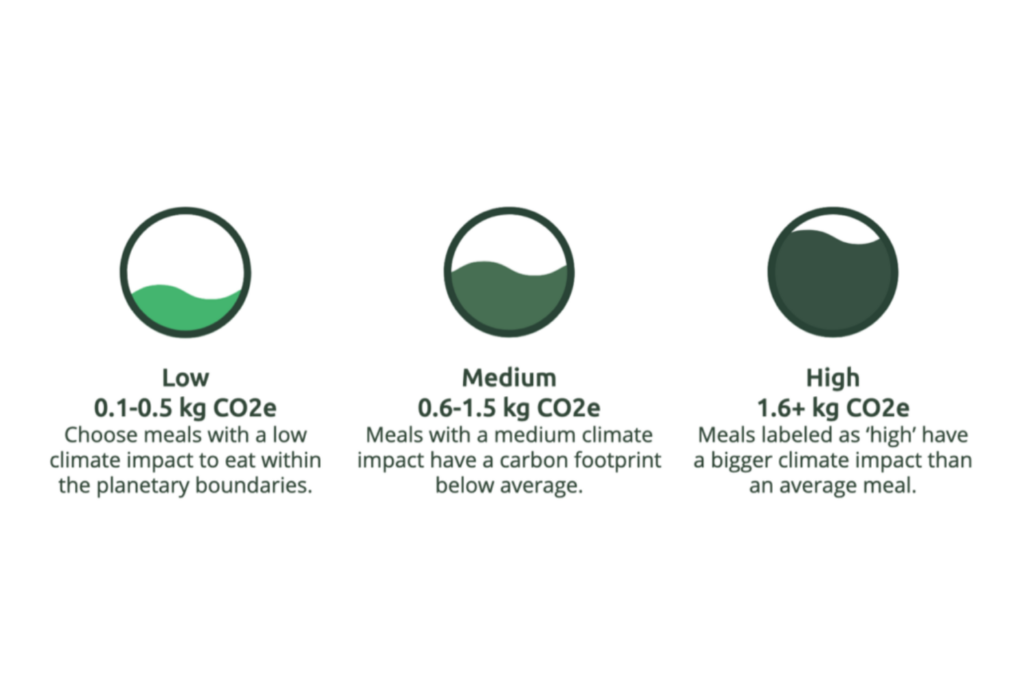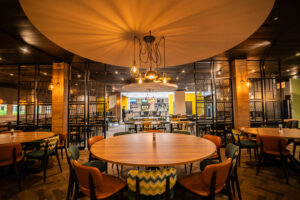
Brain Food
How do you keep your audience interested and engaged right the way through an intensive training day? It’s an issue that challenges HR professionals and one that we at The Venues Collection are keen to address.
Our Group Executive Chef, Sam Morgan, is convinced that serving the right balance of food at lunchtime can play a big part in helping people stay alert and focused from nine to five. Here, Sam explains how TVC is putting this approach into practice.
Light and fresh
In line with the growing interest in healthy lifestyles, I’ve been taking a fresh look at our menus. Moving away from heavy and starch-laden ingredients, we’re determined to offer our conference and training guests a range of options that look and taste delicious and won’t leave them feeling sluggish by three o’clock.
When carbs are digested by the body they are turned into sugar. After eating, your blood sugar will go up and your body will release insulin to bring the level down again. This is what causes us to feel sleepy after eating carbs, especially simple carbs such as sugar and packaged cakes and biscuits.
We’re looking at alternatives to the traditional potatoes, pasta and rice – such as bulgur wheat, quinoa and beans. These healthy options can be incorporated in salads as well as hot dishes. They provide energy but, as slow-release carbs, they stabilise the body’s blood sugar levels.
Omega 3
Fish has been known for a long time as the ultimate brain food and we’re especially keen on mackerel and These Omega 3-rich foods provide more oxygen to the brain, allowing us to retain new information – the ideal choice for a training session. These menu changes also align with current sustainability goals. Our parent company, Compass Group UK & Ireland, has a commitment to be Net Zero by 2030, so the food we serve forms part of that objective. The Venues Collection has a target to make 80% of our ingredients grown, reared or made in the UK, giving us another reason to source our food responsibly.
Mind and body
I’m on quite a learning curve myself at the moment; I’m delighted to have been selected to take part in a ground-breaking culinary training programme in collaboration with Michelin-starred chef Marcus Wareing. Designed to help chefs build new skills, gain new knowledge and expand their imaginations, it includes subjects like sustainable catering, but also delves into general nutrition, including gut health and its link to mental wellbeing.
According to the American Psychological Association, our gut bacteria manufacture about 95 percent of the body’s serotonin – the neurotransmitter that, among other functions, influences mood. Nutritional neuroscientists believe our levels of happiness could be largely influenced by what’s going on in our gut. Recent research is also analysing the profound influence of the gut microbiome on cognitive function.
Headaches, fatigue and lack of concentration are just some of the symptoms that are directly associated with poor gut health, so I’d like to think that what I’m learning will positively impact our guests’ experience.
Five-a-day
At this point, I’d like to reassure you that I’m not on a mission to dictate what our guests eat. Our priority will always be to serve the widest variety of delicious food and beverage options. Favourites like Chicken in Breadcrumbs, for example, will still be on our menus, but the difference is that we’ll breadcrumb that chicken in-house, rather than receive it pre-processed. Fruit is appearing more in our dessert options as well. We’re getting to the point where we’ll be stating how much of your 5-a-day is offered in our dishes.
Blueberries and other deeply coloured berries provide a number of health benefits. According to one review of 11 studies, blueberries could help improve memory and cognitive performance. Broccoli contains compounds like vitamin K, which is essential for forming a type of fat that’s densely packed into our brain cells.
Dietary requirements
Our menus already include vegan options, so we’ve been able to substitute dairy ingredients where they weren’t essential. And, of course, we’re still featuring potatoes. We are offering alternatives to fries, but more creatively: think smoky sweet potato wedges or baked potato wedges, healthier and tastier. We are also introducing vegetables and alternative flavours into familiar ingredients like mashed potato, as a way to encourage the customer to try something new.
We’re confident that we can offer a range of balanced, appealing meal options that meet our guests’ individual dietary requirements while supporting the goals of training organisers in delivering engaged and enthusiastic audiences.
To learn more about our portfolio of training and business events facilities around the UK, speak to our sales team: enquiries@thevenuescollection.co.uk
Go back to other articles


